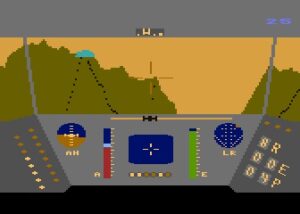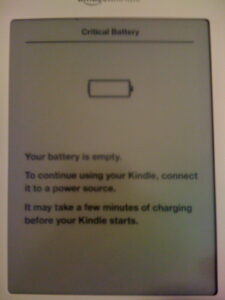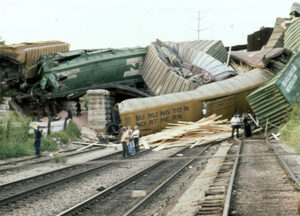I know I said I don’t do new year resolutions, and I don’t. But one of the things I’ve been trying to do – it’s more of a course-correction for my post-40 memory loss – is writing down every damn thing that pops in my head, with hopes of later mining this stuff for story ideas. I know it’s something I should have started doing decades ago, but it’s something I’ve been trying to be militant about.
I just read this book,Weinberg on Writing, which talks about his “fieldstone” method. The analogy has to do with those fieldstone walls you see on old farms. (Watch the last five minutes of Shawshank next time it’s on TBS; they run it pretty much daily. There’s a nice fieldstone wall in that.) When a farmer builds one of those walls, they don’t go to Wally World and say “gimme a thousand yards of stones.” They plow the fields, and when they hit a big stone, they pull it aside and save it. After years of doing this, you have enough stones to build some fencing, or a nice fireplace hearth or wellhouse. It takes time to find the right stones to fit the odd cracks and holes, but if you’re always looking, you never know when you’ll find it.
Most of the art of writing has to do with dragging your subconscious mind into your conscious mind and then dumping it onto pages in a way that can transfer into someone else’s conscious mind and creep into their subconsciousness. Anyone that tells you it’s about marketing or the three-act structure or hitting plot points or what your cover looks like is full of bullshit. That’s about selling books. Salvador Dali wasn’t a genius because he painted the crying clowns and prairie field landscapes that he knew would sell; he was a genius because he would have fucked up dreams and then immediately paint them with no censorship or conscious thought, and those paintings haunt you and are hard to shake because they drill into the bottom of your mind.
The problem is, you can’t sit at a blank page and consciously think, “okay, let’s dump my unconscious mind into this buffer.” You just see fits and spurts of what you need: while you’re in the shower, when you’re cleaning up cat shit, when you’re stuck in an endless meeting. Something pops into your head, and it would be awesome in a story. And then, if you’re above 40 and have spent your lifetime drinking from aluminum cans, it’s gone in ten seconds.
This requires some way to always capture this shit. The current strategy is a three-pronged approach:
1) The iPhone notes program. It’s pretty easy to use; it syncs up with IMAP in my gmail account, so I can also get at it from my Mac or my iPad, making cut/paste pretty easy. The downside is typing with my thumbs, and it’s not always easy to whip out a phone and tap away.
2) A google docs document that does the same as above. I use this less and less, but there are times where I’m not at any of the above three iOS machines, or where I need to cut/paste in something sizable, like a big chunk of an article.
3) A moleskine notebook. The classic, hardcover, lined. I’ve got a little folding pen that bungees right into the elastic cord, and it stays in my jacket pocket or bag at all times.
 There’s a certain tactile satisfaction to keeping notes in a moleskine; that’s a huge plus. And there’s an overwhelming joy in filling up one of these leather-bound pocketbooks, like you’ve accomplished something more than just dumping ASCII into a buffer. I just finished one of the books, and it took me almost two years, just because I write in fits and spurts, and this “capture everything” movement just got into gear.
There’s a certain tactile satisfaction to keeping notes in a moleskine; that’s a huge plus. And there’s an overwhelming joy in filling up one of these leather-bound pocketbooks, like you’ve accomplished something more than just dumping ASCII into a buffer. I just finished one of the books, and it took me almost two years, just because I write in fits and spurts, and this “capture everything” movement just got into gear.
Now here’s the real problem with the moleskine: how to move these fieldstones into the production line. The iPhone notes thing is easy: Ctrl-C, Ctrl-V. The notebooks – well, first my handwriting is horrible. And I barely hit the lines to get all of this stuff parallel to each other so OCR can handle it. And I can’t ship it off to someone and have them transcribe it, since I can barely read it.
The current workflow is to scan the entire thing in as a single PDF using Preview and my printer/scanner. This take some work, only because you end up with a 50-meg file, and there’s no way you’ll do a hundred scans without Preview crashing at least five or six times. (I know, Windoze people are like “ha, it doesn’t just work”. But I was able to use a piece of software that came on my system for free, without spending 19 days researching what third-party program works with my brand of scanner, brand of USB chipset, version of Windows, brand of USB cord, IRQ settings, motherboard configuration, and then find out the software I paid fifty bucks for is a “lite” version and the “pro” version costs $999.)
Then, I split the PDF into a hundred or so PNG images. I have a Scrivener project that’s just a dumping ground for all of my fieldstones, failed stories and books that still have some reusable bits, and whatever else. So I create a folder for the book, and dump the PNGs onto a file in the binder, then split that up into a bunch of files, and either type in the bits of each page, or ignore them. (Sometimes a page will just be a partial grocery or todo list, or something I’ve already used, so not everything is gold.)
The process of turning these fieldstones into working stories and books – that’s another project, and a workflow I haven’t mastered yet. But a lot of The Earworm Inception came from fieldstones that were grouped and fleshed out, and this next book is using a lot of stuff collected like this. Some of them will be duds; some just become a single line in someone’s dialogue, or a little aside. And some will be the nucleus of an entire work.
So I’m having fun, transcribing this stuff, finding little gems. And I’ve got the next Moleskine up and running, ready to capture whatever happens in the back of my head during my TPS report filing during the day.







